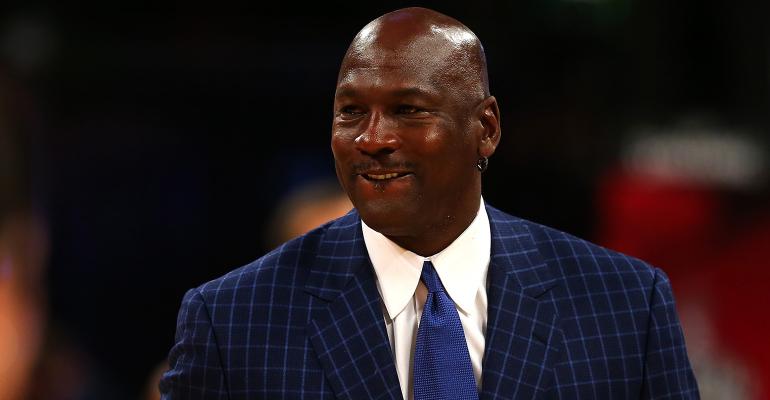Times have changed. And yet, they remain the same.
As the No. 1 pick in last year’s NBA draft, Ben Simmons will earn an average annual salary of approximately $6 million — double that earned by David Robinson, the first player drafted in 1987, the year I was selected by the Cleveland Cavaliers.
At last look, an estimated 60 percent of former NBA players go broke within five years of departing the league. And by no means are these financial problems confined to the NBA. A reported 78 percent of former NFL players have gone bankrupt or are under financial stress just two years after retirement.
As the salaries of professional athletes across all sports grow larger, so too does the number of individuals seeking to prey on their successes and wealth. The reality is, they’re targets the day they sign those contracts.
During my 16-year NBA career, I saw newly retired teammates lose everything to financial schemes and scams, dishonest or unqualified advisors and reckless spending only a few years after leaving the league. Since starting a second career as a financial advisor more than a decade ago, I’ve seen this storyline repeat itself again and again. Not a month goes by without seeing a headline describing the latest riches-to-rags story in professional sports.
For most athletes, there is no easy fix for a significant financial setback. Unlike virtually every other profession out there, an athlete’s career earnings are compressed into just a handful of years. Time is not on the side of those who are undisciplined, unrealistic or too trusting. Careers are short and savings must last for the rest of your life. Beating the odds requires a lot of work and discipline.
Here are some guidelines to offer high-profile clients that may help improve their journeys:
- It’s your money — own it. Athletes in their prime earning years can develop a detachment from their own money. Since so much is coming in so quickly, suddenly few purchases require more than a moment’s consideration, so money stops being a real concern and becomes just a bunch of numbers on paper — until it’s gone that is. It’s essential that high-profile clients realize the tenuousness of their situations and just how vulnerable they are, even if they have advisors in place. Taking ownership of their money and keeping constant track of what their advisors are doing with it is the first step towards security.
- Preserving capital is as hard as obtaining it. Though we’ve become accustomed to the likes of Michael Jordan and Michael Strahan settling into second careers as endorsers, television personalities and even team owners, most athletes won’t be so lucky. The simple truth is they won’t have the opportunity to make money like this again. That’s difficult for a young person to recognize when in the midst of living a dream. There are so many ways it can disappear: Friends, family, lifestyle and constant pitches for "can’t miss" opportunities. They have to not only save, but also invest wisely, all while navigating the minefield of people looking to take advantage of them, because there likely won’t be more coming in.
- Risk and return are forever linked. High-profile clients are bombarded by constant pitches for potential business “opportunities” often by trusted sources (I probably got pitched a “once in a lifetime” opportunity every month). It’s important for them to realize that if it sounds too good to be true, it probably is. Anything offering a great return likely does so for a reason — usually drastically increased risk.
- Fees matter. Ensure that your clients are kept abreast of everything that happens with their money and what it is costing them. Small unnecessary fees can easily be ignored in the moment but can make a big difference over time. Take the time to ensure that your client understands all the fees involved with a product or service. If they bring an offer to the table from an outside source, you’ll really have to break it down hard for them so they know what they’re getting into. For the overall portfolio, the fee conversation can be broader but it’s nonetheless important to break down exactly what you’re charging and why. This builds trust with the client and reinforces the importance of keeping track of such matters — an appreciation he’ll hopefully bring into meetings with his other advisors and business associates.
- Don’t worry about what your teammates are invested in or how they live. I like to call this one the "MTV Cribs" rule. Others may prefer “keeping up with the Joneses.” We all feel that pressure to keep up with our neighbors. However, for professional athletes, it’s even more acute. Their salaries are public information, so there’s an expectation that they maintain a certain lifestyle, and they’re often surrounded by conspicuous spending. However, clients must understand that they aren’t living off one year’s salary for just a year like most people do. That one year of big pay often has to last for 60. Establishing sustainable long-term spending practices and settling into a manageable lifestyle are of the utmost importance.
The likelihood of an NCAA basketball player getting drafted by an NBA team hovers around 1 percent which underscores the tremendous amount of skill, sacrifice, talent and determination it takes to make it. Even after overcoming these incredible odds, life after the NBA arrives much sooner than expected — the average career spans less than 5 years (and is even shorter in other major sports).
Despite these startling statistics, the hard work doesn’t end when the ball stops bouncing. Financially, it’s only just begun.
Chris Dudley, CFP is a senior wealth advisor at Boston Private Wealth. Before becoming an advisor, he played 16 seasons in the NBA.





